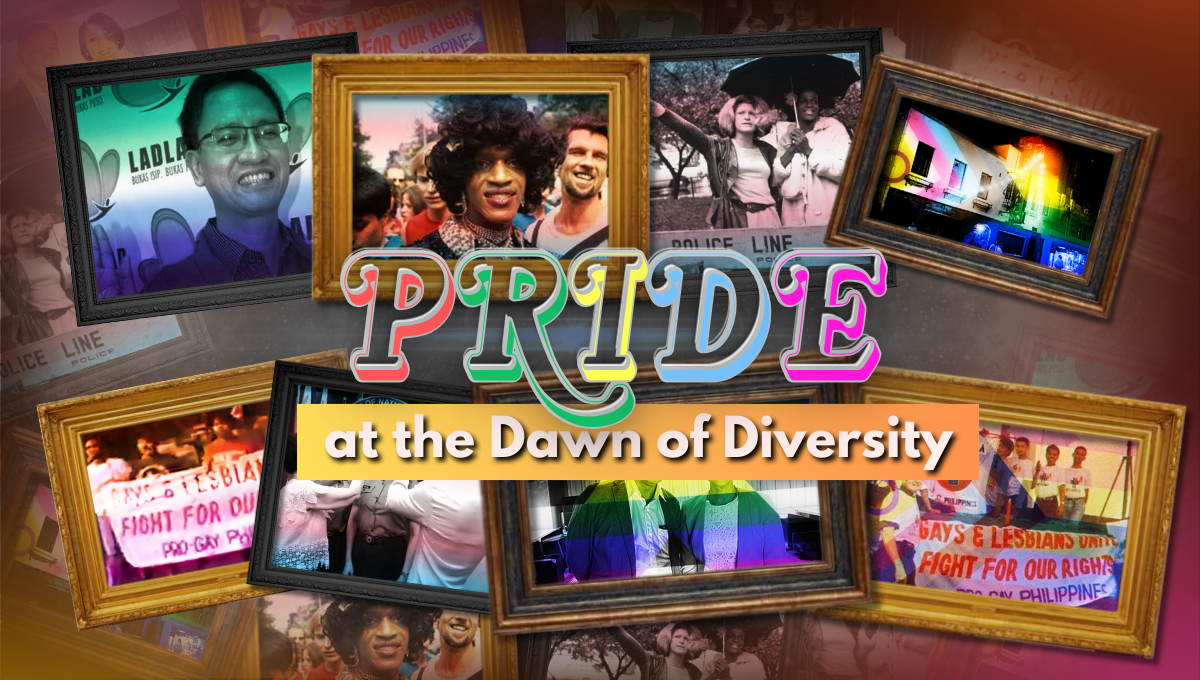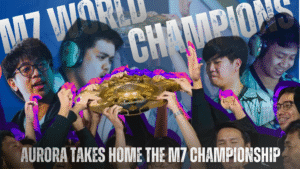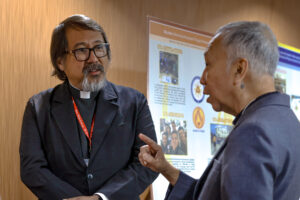By Nathan Manaog | June 30, 2024

Graphic Art by Yuri Morrison
‘PRIDE’ at the Dawn of Diversity
STANDING proud in the limelight of June is a band of individuals fighting for a deep cause in the ongoing struggle for recognition and equality. With their rainbow flags raised and their identities on full display, Pride Month in the Philippines paves the way for people to embrace authenticity and celebrate the richness of diversity. But amidst all the celebration, how has the journey toward equality unfolded in the Philippines over the years?
The Stonewall Awakening
In June 1969, a global movement was born when police raided Stonewall Inn, a gay bar located in Greenwich Village, New York in the United States. The event became a turning point for the Gay Liberation Movement in the US, resulting in a series of spontaneous protests, known as the ‘Stonewall Riots.’
In honor of the 25th anniversary of this pivotal movement, the Philippines took a significant step for Asia by holding its first pride parade on June 26, 1994. This was made possible by the Progressive Organization of Gays in the Philippines (PROGAY Philippines) and the Metropolitan Community Church (MCC) Manila. Marching from EDSA at Quezon Avenue to Quezon Memorial Circle, the first pride parade only included 60 participants. Despite the small number, this marked the first time the public saw a visible and vocal LGBTQ+ community at such a scale, earning the event the dub “Stone Wall Manila.”
Visionaries of Inclusion
The journey to the current state of LGBTQ+ rights in the Philippines owes much to numerous influential figures who have paved the way for many through their acts of bravery and advocacy. Among them is Geraldine Roman, who made history in 2016 as the first transgender woman elected to the Philippine Congress. Her election marked a significant step in political representation and a valuable accomplishment toward greater acceptance of the LGBTQ+ community in the political sphere.
Another noteworthy person is Danton Remoto, a multi-award-winning writer and media personality who founded Ladlad, the first political party for LGBTQ+ individuals, in 2003. Although the party has yet to have a seat in Congress, Remoto has continued to play an active role in LGBTQ+ representation. Notably, in 2015, his coming-of-age book “Riverrun,” which tells the tale of a young homosexual man growing up under a military dictatorship, became the first gay book published in the Philippines. In 2020, the book’s global edition was published by Penguin Random House SEA.
Pride and Progress
Since the first Pride Walk, there has been steady but significant progress regarding LGBTQ+ rights in the Philippines. Cities like Quezon and Cebu City uphold anti-discrimination ordinances providing legal protection against gender identity discrimination. Various platforms feature LGBTQ+ characters, who gain immense popularity on social media and television, crucial for shifting public perception.
Furthermore, the approval of the SOGIE (Sexual Orientation and Gender Identity and Expression) Equality Bill remains a milestone yet to be reached by advocates. The bill has faced many challenges over the years, but the determination of advocates brings about the LGBTQ+ community’s willingness to fight for equality and respect.
Pride Month is not just about loud cheers or festive parades. It is a call to action for equal treatment. Each stride in the rainbow flag represents individuality and the qualities that make a person unique. As Pride Month ends, it is important to keep that spirit alive for generations to come.
Volume 30 | Issue 1



